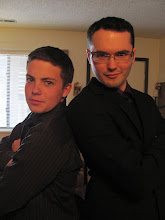The major question that I have created within the Mediated Culture project deals with forging links and the ripples that arise from connections. The best approach for understanding the process of the Egyptian revolution is to study the leadership dynamic. I am attempting to understand this dynamic starting at the origin of movement. I am currently studying other social movements for comparison, and I routinely find the prevalence of a leader. Mahatma Gandhi was a prominent leader during the Indian civil rights movement (1893-1914) and struggle for independence from the British during (1915-1945). The direction of the movement was dictated by its leader in both form and goal.
The above example is just one of many. Another arises from the civil rights movement with the leader known as Martin Luther King Jr. These are movements for rights of a people, and they are not so different in purpose from the Egyptian revolution.
The medium is the major contrast between movements then and movements now. An example of a new media movement arises out of Burma VJ. This is one of the first major examples of video in the hands of the people, raw footage, real image, a lens into reality.
Burma VJ is a starting point of change in revolution. The lens of a video camera changes the focus. The definition of a leader becomes skewed, and the focus on an individual becomes more variable. Burma VJ starts with a leader (Aung San Suu Kyi) and the movement shifts to the leadership of Buddhist Monks. This shift is descriptive of the individual-to-masses movement. During the shift process, videographers are continually placing power within the people. I believe that this is the development that arises within the Egyptian Revolution. New forms of social media are placing power within the masses.
The leadership dynamics have completely changed, and they are descriptive of the development of a new medium. I have been researching the leader figures within the Egyptian movement, and one major figure is Wael Ghonim. Yet, his leadership is not manifested within the old form of discussion. He is leading through twitter and Facebook. His statements are confined to 140 characters and manipulated by the links we forge. He works for Google. He is composed of the masses.
We are truly redefining how we operate and how we make decisions. The concept of agency is changing. Everyone has a say in the choices we make, and the focus shifts from a leader to the people. Is this a beneficial dynamic? Can we operate within this new realm?
More to come on decisions within groups...
Sunday, March 27, 2011
Wednesday, March 16, 2011
Re/Revolution
This is a trailer for my research project in a Mediated Cultures class Anth522. I would like to thank Al Jazeera for the Creative Commons video. I would also like to thank Tryad for the music titled Alone.
I have been watching videos online about the revolution within Egypt. The video that I constructed is an attempt to create a conversation starter for how new media has Re/mediated Revolution. This video is a proposal and it contemplates the questions:
- What do we touch with mouse buttons?
- Within the interwebs, What ripples are created by a link?
- What actions are we endorsing/inhibiting through new social media?
- How invasive is social media today? And is that a good thing?
If we know all that we know... Does that give us the ability to take action? Or do we stand idly by? While feeling act-less emotions...
The world is in constant flux, and our new media awareness resolves the ripples. Yet every ripple we try to change... another begins
Labels:
Al Jazeera,
anonymity,
anth522,
art,
communication,
egyptian,
mediated,
reality,
revolution,
Tryad,
tunisia
Sunday, March 6, 2011
(On-Off)Line
Video Research: This video does well to depict the origin of the Tunisia revolution and the rise of the Egyptian movement. There is a lot of youtube video that will be useful for our project concept. During my group library meeting today, we discussed ideas for our movie trailers. Our technique consisted of attempting to confine a research idea/interest/area into a single word or set of words. We each created the subject of our individual study, and the major themes that we developed are:
- Origin of Revolution Movement
- Use of Anonymity within Revolution
- Interview of individuals on the ground for cultural perspective and comparison to mediated perspective (What is happening offline?)
- Twitter and Technology manipulation to establish useful tools for revolution movements (How does the social movement dictate the technology?)
- Changes in brutality due to the glass dots (Revolution can be seen globally and it can be difficult to isolate)
- Mouse clicks start a revolution
Labels:
abstracting,
anonymity,
art,
cognition,
communication,
egyptian,
mark,
reality,
revolution,
tunisia,
wolf
Subscribe to:
Comments (Atom)
